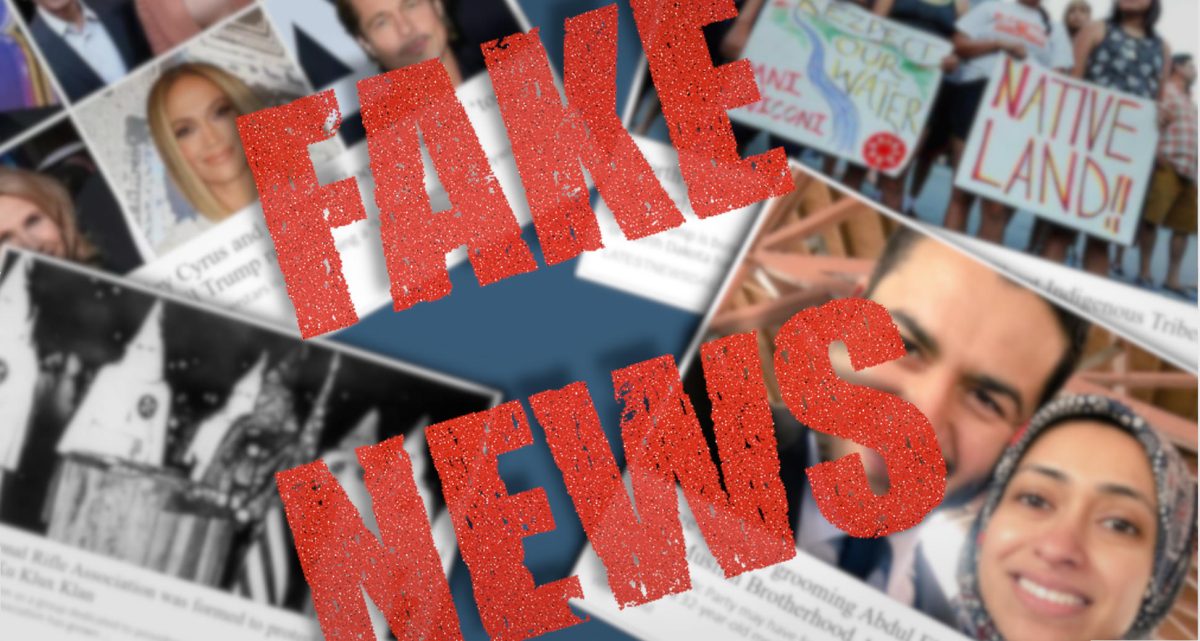Wuerzburg psychologists have studied what makes people more susceptible to fake news. Credit: Jan Philipp Rudloff / University of Wuerzburg
A new study has found a link between dark personality traits and fake news.
Fake news has been the focus of recent research at the Human-Computer-Media Institute at the Julius Maximilian University of Würzburg in Bavaria, Germany. “Some people believe Fake News even when the scientific facts clearly contradict them,” says psychologist Jan Philipp Rudloff. “We wanted to know why this is the case and investigate the role played by our ideas about the nature of knowledge and facts.”
Rudloff carried out a thorough experiment on this topic while pursuing his Ph.D. in the department of communication psychology under Professor Markus Appel. Along with Appel, he confronted more than 600 Americans with different headlines, such as “Trump’s first 3 years created 1.5 million fewer jobs than Obama’s last 3.” Participants were asked to rate how accurate these statements were.
Epistemic beliefs were assessed with a questionnaire
Participants then completed an extensive questionnaire. Participants were also asked to rate the importance of strong evidence to them, how much they trust their intuition when assessing the accuracy of the information, and how much they believe that politicians, scientists, and the media “fabricate” facts to serve their agendas.
“We summarise these aspects as ‘epistemic beliefs’,” Rudloff explains – epistéme comes from the Greek and means “cognition” or “knowledge”.
In addition, the questionnaire assessed how important it was for the participants to assert their own interests (even at the expense of their fellow human beings). This characteristic is also called the “dark factor of personality”. It is considered the core of various dark personality traits such as narcissism, psychopathy, or Machiavellianism. “Everyone is selfish to a certain degree,” Rudloff explains. “However, it is problematic when people focus on their own well-being so strongly that the interests of their fellow human beings no longer play any role.”
People with dark personality traits bend reality according to their own benefit
The study showed that the less the participants believed in the existence of facts, the more difficult it was for them to distinguish true statements from false ones. In addition, there was a second finding: the stronger the “dark factor of personality” of the participants was, i.e. the more pronounced their self-interest at the expense of others, the more they doubted that there was a difference between scientific findings and mere opinions.
“You could call their beliefs post-factual; they only believe what feels true to them,” Jan Philipp Rudloff emphasizes. Accordingly, they find it difficult to distinguish true statements from false ones, so they particularly often believe fake news to be true. “People with dark personality traits bend reality to their own liking. For example: I don’t wear a mask because the coronavirus was just invented by the media anyways,” Rudloff explains. “Bending the facts based on selfish motives works especially well when people are convinced that there are no independent scientific facts anyways.”
In another study published in spring 2022, Rudloff and Appel, together with Dr. Fabian Hutmacher from the JMU Department of Psychology of Communication and New Media, were already able to show that people with dark personality traits were more likely to endorse COVID-19 conspiracy theories during the pandemic.
Rudloff emphasizes, however, that it is by no means only this group that is susceptible to conspiracy theories and fake news. “Epistemic beliefs are the decisive factor,” he says. “People who don’t believe in the power of sound evidence and arguments won’t be swayed by even the most impressive fact-checking – regardless of their other personality traits.”
Epistemic beliefs develop at a young age
In psychology, epistemic beliefs are thought to develop and solidify during childhood and adolescence. For young children, there is only black or white on many issues: an idea is good or bad, and a proposition is true or false. Later they learn to differentiate: Whether someone likes Beethoven or is into pop songs is a matter of taste. During this time, they tend to see different opinions as equal – even those on matters such as climate change being caused by humans.
“In the best case, at some point, we learn to evaluate different positions,” says Rudloff. “For example: yes, there are different opinions, but some are more by backed by evidence than others.” But not everyone seems to take this step. In situations like climate change or COVID-19, where a rational assessment of arguments is crucial, this deficit can have serious consequences.
Reference: “When truthiness trumps truth: Epistemic beliefs predict the accurate discernment of fake news” by Jan Philipp Rudloff and Markus Appel, 2022, Journal of Applied Research in Memory and Cognition.
DOI: 10.1037/mac0000070
Share your story or advertise with us: Whatsapp: +2347068606071 Email: info@newspotng.com













 NEWSPOT NIGERIA DAILY PULSE
NEWSPOT NIGERIA DAILY PULSE  May 05, 2025
May 05, 2025

